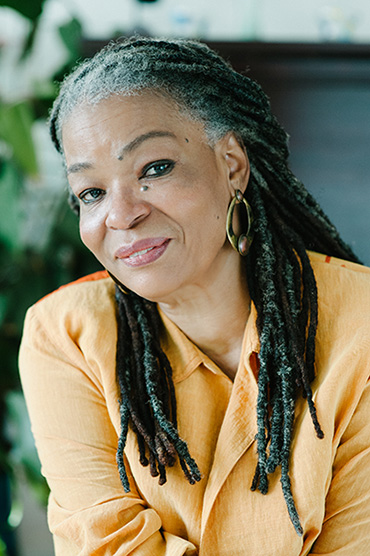
(Photo credit: © Marc-Antoine Zouéki)
From poetry and short stories to novels and children’s literature, Marie-Célie Agnant has created a substantial body of work in which memory and recollection play a striking role.
As a writer, Agnant is in touch with and attentive to the world around her, and for her, literary creation mainly involves weaving together poetry and prose. She addresses topics such as the status of women, exclusion, loneliness, racism and exile.
As a result, Agnant’s works are influenced by the poetry and violence of post-colonial societies and highlight the fundamental principle that she espouses: refusal to pose as a bystander or be complacent, a unique quality evidenced by the enthusiasm that her writings arouse. She has travelled all over the world, following invitations extended mainly by the international network of universities ever since her first book was released. Agnant is among the authors who have most often represented Quebec and Canada abroad at seminars and conferences or as jury members.
Agnant is a storyteller, and she facilitates writing workshops here and abroad, mainly in schools. Her writing workshops focus on storytelling, a literary genre that she considers a gateway to language learning.
A collective work entitled Paroles et silences chez Marie-Célie Agnant, written by 12 literature teachers from all backgrounds, edited by Colette Boucher and Thomas Spear (Éditions Karthala, Paris, 2013), highlights her contribution to writing and literature.
Marie-Célie Agnant was a finalist for the Prix Desjardins (1995) and the Governor General’s Award (1995), and won Belgium’s Prix Gros sel, Grands enfants (2011) for La Légende du poisson amoureux. In 2014, she received the Prix de Création en prose from the SODEP (Société de développement des périodiques culturels québécois) and, in 2017, the Prix Alain-Grandbois from the Académie des lettres du Québec for her poetry collection Femmes des terres brûlées.